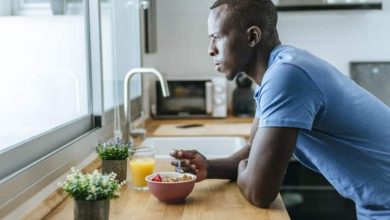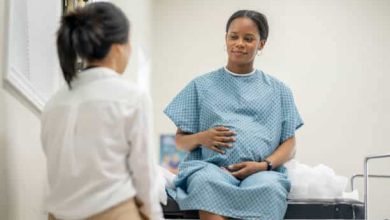The #1 MISSED Health Screening Among Black Folks


According to the National Cancer Institute, only 60 percent of Black folks 50 and older get screened for colorectal cancer, compared to 68 percent of white adults. But it gets even wilder. Per the American Cancer Society, Black people have a 20 percent higher rate of diagnosis and are 40 percent more likely to die from colorectal cancer than other races.
Considered the third most common cancer in the Black community, it’s no wonder this thing’s a problem. But what’s driving this? Why are so many Black men and women of all ages not getting screened? Why are opportunities to save lives not being seized?
Unfortunately, there are no simple answers to these questions. However, by examining the research and statistics, and by understanding the cultural factors, we can begin to figure this out…
An Alarming Truth
The numbers from the National Center for Health Statistics are pretty grim. In 2023, roughly 153,000 people were diagnosed with colorectal cancer in the U.S. alone. Some 52,000 of those individuals are expected to die, with nearly 4,000 deaths coming in people under the age of 50.
So clearly, colorectal cancer is not a problem of small proportions. It’s an issue that can strike when people least expect it. One day it’s stomach problems that don’t seem to go away, then you’re at the doctor, and BOOM – a cancer diagnosis.
This again, is why early and regular screening is so important.
One of the suspected reasons for low screening rates is a lack of healthcare access. This could be a lot of things, whether it’s poor insurance coverage, not enough doctor’s offices or clinics in communities, or problems paying medical bills.
Sometimes, it’s also due to medical mistrust. Black patients especially may feel that doctors are not culturally aligned. Perhaps they don’t understand certain struggles, ethnic traditions, diets, or other lifestyle factors that impact Black health and well-being.
In some cases, it’s simply a lack of awareness. Certain communities aren’t getting the education about these types of health problems and screening procedures. They simply don’t know, and unfortunately, you can’t treat what you don’t know.
But it goes beyond this…
RELATED: Q&A: Are Black Americans Facing a Silent Crisis with Colorectal Cancer?
How Colorectal Cancer Differs in Black Folks
The problem with colorectal cancer in the Black population is complicated. Not only does it occur at higher rates in more aggressive forms, but it actually shows up differently in screenings and tests. The result? Many Black patients may not be getting the diagnosis they need.
The lack of detection means a lack of proper treatment, which of course means worse outcomes for survival. This is why understanding the biological differences is so critical.
According to research, Black patients have unique gene mutations that may make them more susceptible. These include issues with the KRAS, APC, and BRAF V600E genes, which regulate how the body repairs DNA problems. Without these genes working right, cancers may be more likely to develop.
Black folks also have cellular differences in their colons, causing colorectal cancer to strike different parts of their colon. In fact, the Black community is more likely to get this cancer in the right side of the colon, as well as the rectum. This is problematic because these areas are often harder to detect and treat.
The tumor characteristics of colorectal cancer are also different. Studies indicate that Black patients may have more pro-inflammatory cytokines, which may increase the growth of tumors. This is a primary reason that their cancers may show up more aggressively.
So What Can Be Done?
The first thing is knowing your options. If you have symptoms, don’t ignore them if they persist. Remember, many symptoms of colorectal cancer are often mistaken for something else. Problems such as cramping, weight loss, fatigue, pelvic pain, back pain, and changes in your bowel movement schedule may all be caused by colorectal cancer.
Even if you don’t have symptoms, you should start getting regular screenings at age 45, and sooner if there’s a family history.
When it comes to screenings, don’t be afraid to ask for more testing if one doesn’t find anything. Besides the typical colonoscopy, tests like the fecal immunochemical test (FIT), flexible sigmoidoscopy, stool DNA test, and CT colonography can all help immensely.
Again, it’s always better to be safe than sorry. The first doctor you see will likely be a gastroenterologist, but from there you may see a medical oncologist, colorectal surgeon, pathologist, and more.
If this all sounds overwhelming, just think of it this way. You’re taking on this problem head-on. You’re finding out for sure, leaving no stone unturned, and getting ahead of the issue.
This is the smartest and best thing you can do, even if it can sometimes be a pain in the butt (pun intended)!




